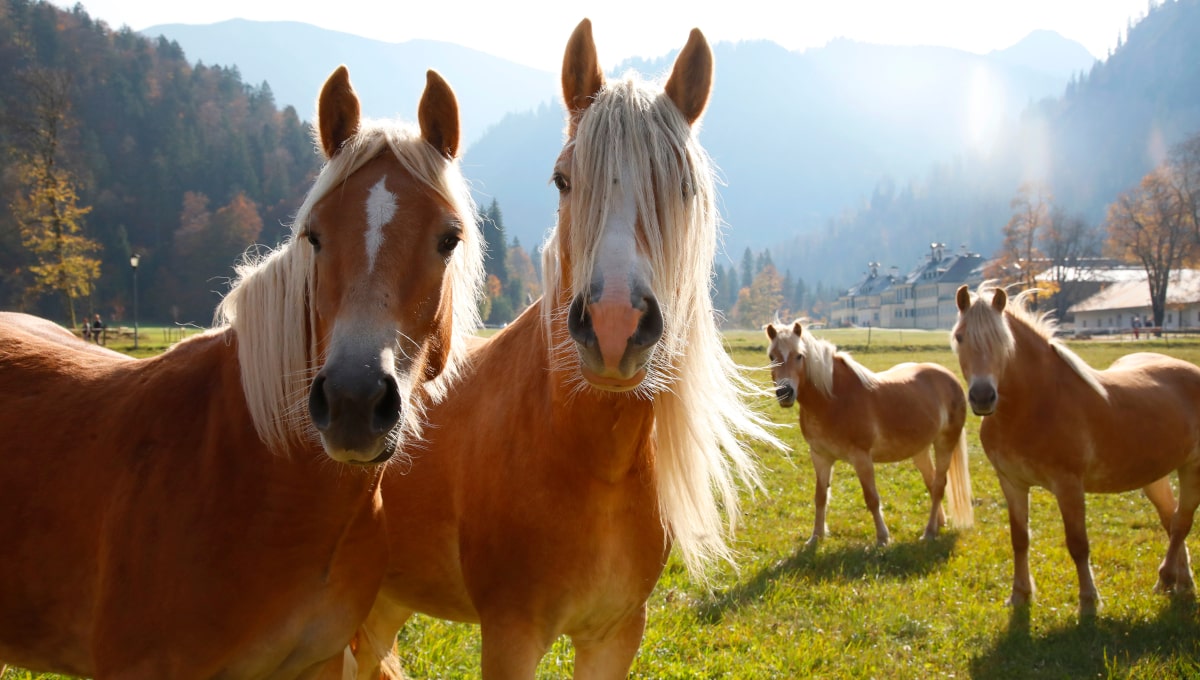(W)FFS gene variant in the Haflinger in Germany
WFFS, Warmblood Fragile Foal Syndrome, is a recessive hereditary disease that was initially only described in warmbloods. Classic symptoms are extremely stretchy and brittle, cracked skin, as well as extremely overstretched joints, especially the fetlock joints are affected. Other possible symptoms are incomplete closure of the abdominal wall, deformation of the spinal column, intracranial hemorrhage and others.
Affected foals are not viable and, if they were not already stillborn or died shortly after birth, have to be euthanized due to the poor prognosis.
In 2020, various studies were published showing the presence of the WFFS gene variant in various other horse breeds such as the Thoroughbred, the Knabstrupper, the Quarter Horse, the Paint Horse, the Mustang, the Appaloosa and also the Haflinger. The hereditary disease originally known as Warmblood Fragile Foal Syndrome is therefore now also referred to as Fragile Foal Syndrome (FFS).
As part of a study conducted internally at LABOKLIN, the question was to be answered as to what extent the (W)FFS gene variant can also be found in Haflingers in Germany. For this purpose, 448 samples from Haflinger horses from Germany, which were available at LABOKLIN, were analyzed. The genotype N/N (free) was determined for 443 animals; these animals do not carry the gene variant that causes FFS. 5 animals (1.1 %) showed the N/WFFS genotype, i.e. these animals are carriers for the FFS gene variant and can therefore pass it on to their offspring.
The study shows that the FFS gene variant also occurs in Haflinger horses in Germany, but the carrier frequency of 1.1% is significantly lower than in warmbloods, where various studies postulate a carrier frequency of between 12% and 15%. The exact extent to which the German Haflinger breeding population is affected cannot be deduced from this study, as it was not checked whether the animals examined were bred in Germany or imported from abroad.






